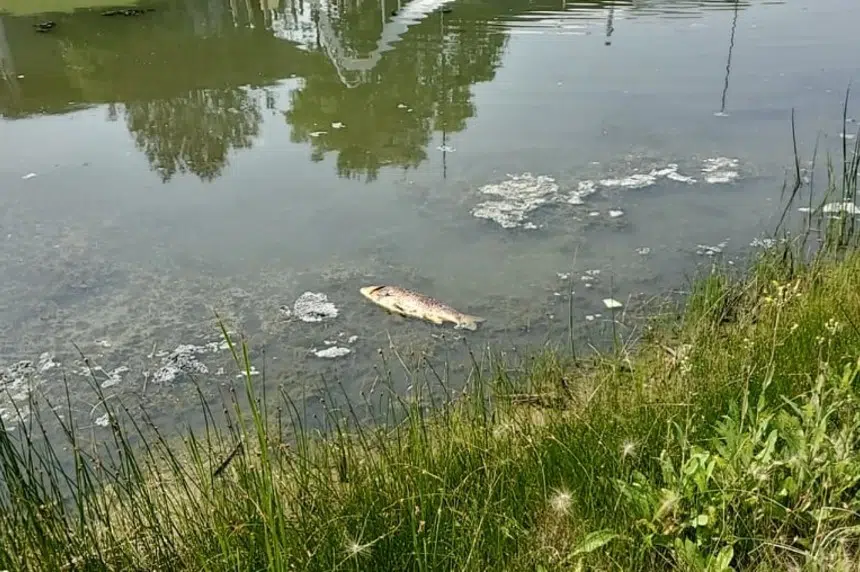If you’re out on the lake, you might notice a bit of a nasty surprise — hundreds of dead fish floating in the water.
It’s certainly gross, but there’s not much that can be done about it according to Gord Sedgewick, a fisheries biologist with the Ministry of Environment.
He said that the lakes most affected this summer are north of Fort Qu’Appelle: Echo and Pasqua Lakes. However, there have also been reports at Katepwa and Last Mountain Lake.
He explained that this summer, only carp and tullibee cisco are turning up dead in large numbers.
“There is no oxygen below nine meters. So, what’s happening is these cisco are coming up, they have to breathe. So they come up into the warmer water, but it’s too warm for them,” Sedgewick said.
That’s mostly thanks to the well-above temperatures seen this summer, which can cause some real trouble for some types of fish.
“Warm water holds less oxygen, but fish in warm water need more oxygen. I call it the double whammy … So that’s why we’re seeing these fish kills,” Sedgewick continued.
Thankfully, other species like walleye, perch and jack are adapting.
But cleaning up hundreds, if not thousands of fish corpses is no easy task.
“I thought I could just take them out like other fish, poke a hole in their bellies and they would sink, but carp don’t do that. When they’re rotten, you can squish them and you can do everything with them, and they still float. So, if you want to get them off your shoreline, you pretty much have to physically remove them,” he said.
From there, he said that you can either bury them or see if any nearby farmers would like to use the dead fish as fertilizer.
The only other option is to simply leave the dead fish to decompose in the water or to just leave it up to nature.
“I can tell you, there’s not a hungry bird out there,” Sedgewick said with a laugh.







